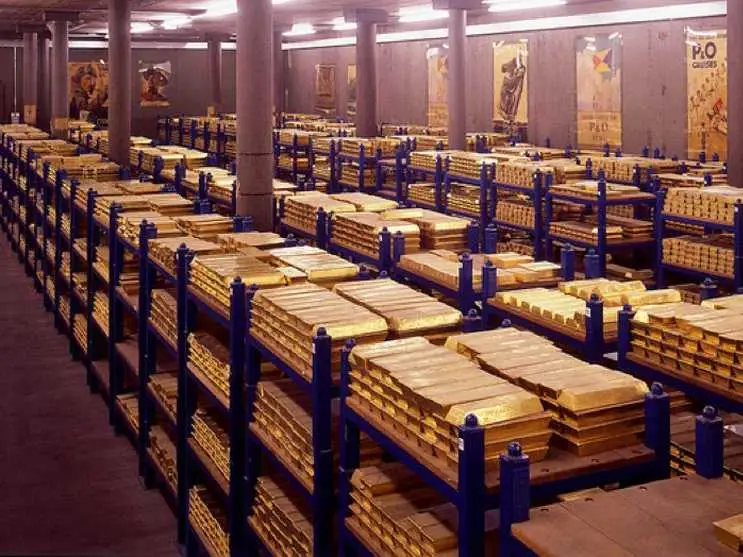Gold is one of the favourite investment instruments that lets you grow your money at a moderate rate with moderate risk. If you are an investor, you should ideally be aware of factors that influence the price of gold.
In this regard, you also need to know that the price of this metal differs across locations, for example, gold rate in Coimbatore may differ in Hyderabad. Whether you buy this precious metal for investment or buy it as a piece of jewellery, you can understand a suitable time for purchase by knowing the factors influencing the rate of gold.
ADVERTISEMENT
Aspects that Influence Rate of Gold
Like any other commodity, gold’s price changes on a regular basis according to market sentiment. However, this fluctuation is not as rapid and volatile as the prices of company stocks. Following are some of the factors that influence the price of gold throughout different locations in India:
1. Demand and Supply
Although gold is being continuously mined for making jewellery for more than 5,000 years, it is a finite resource. Its overall supply also remains consistent throughout the years. If for some reason, such as oncoming wedding seasons, religious or cultural festivals and occasions, the demand increases, its price also surges at the same rate. This way, this demand and supply are major factors behind changes in the rate of gold.
In this regard, you also need to note that, in India, the demand for gold differs across different areas. For example, south Indian cities retain a high demand for this yellow metal throughout the year. Due to this difference in demand, the gold price in Hyderabad, Coimbatore and other South Indian Cities vary from North Indian cities like Mumbai, Kolkata and Jaipur.

2. Fluctuation in Currency Value
Gold price significantly fluctuates with changes in the valuation of rupee with respect to dollar. This is so because India is a large importer of gold. When the value of the rupee decreases with respect to the dollar’s value, Indian importers need to pay more of the domestic currency to purchase this yellow metal, thereby increasing gold’s rate in India.
ADVERTISEMENT
3. Bank Interest Rate
In a common circumstance, bank interest rate and the price of gold stay in an inverse relation. With an increase in interest rate, the price of gold decreases and vice versa. This is because with an increasing bank rate, people tend to liquidate their gold to earn a higher profit and invest their money in different other instruments. The opposite happens with a decrease in interest rates, resultantly gold’s demand also surges.

4. Geopolitical Turmoil
The geopolitical turmoil and movements create uncertainty in the market. As a result, other asset classes lose their values and see a significant decline in their prices. However, since gold retains its intrinsic value, people become inclined to purchase gold by liquidating their other assets. Again, this growing demand leads to more increase in the overall price of gold.
5. Inflation
Changes in the rate of inflation and the price of gold are directly proportional. Since the relative value of currency decreases during inflation, you need to pay a high amount of money to purchase a certain amount of yellow metal. However, inflation does not impact the intrinsic value of gold. For this reason, people generally like to hold their gold to hedge against inflation.
6. Import Duty
India is a consumer of gold and imports a large amount of this commodity from other countries. As a result, buyers need to pay import duty and cess charges to the Indian Government. When the government increases this tax and cess charge, importers end up paying more on their purchases. Consequently, the domestic selling price of gold also increases.
7. Local Jewellery Association
The local associations of jewellers also influence the rate of gold in different states of India. For instance, in Tamil Nadu, you can find the Jewellers and Diamond Association Madras which determines the gold rate in Coimbatore and other cities of the state. Similarly, there are also other different associations in other states imparting a similar influence.
8. Government Reserves
The Reserve Bank of India holds gold in its coffer in addition to cash, bonds, securities and other assets. When it holds more gold by purchasing it from the domestic market, the overall supply of this yellow metal significantly reduces and at the same time, cash flow within the economy increases. Due to this increase in demand, the price of this metal surges substantially.
ADVERTISEMENT

Now that you know what elements affect the gold rate in India, you can make informed decisions about whether you should go with your purchase/investment, or wait for some period. In this regard, you also need to look for city-specific prices of the metal, as it differs from one location to another. For example, the gold rate in Coimbatore may not be the same as the gold rate in Mumbai or other cities in India.
ADVERTISEMENT












